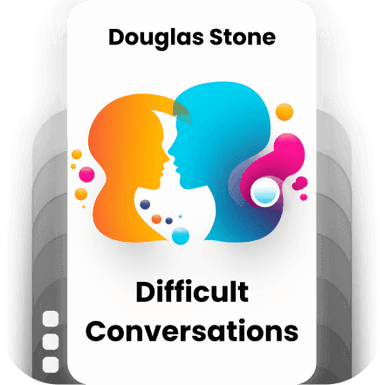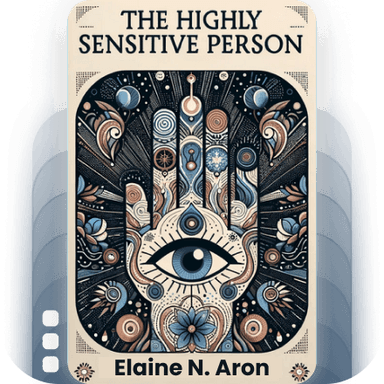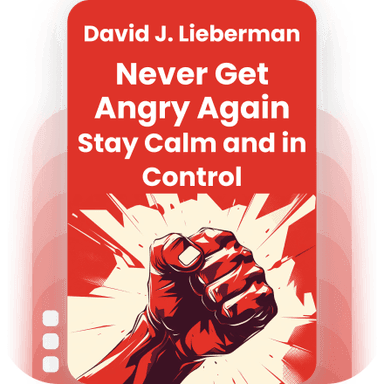
Never Get Angry Again: The Foolproof Way to Stay Calm and in Control in Any Conversation or Situation
David J. Lieberman
4.2 - 5 ratings
10
List Points
10
Chapters
5
Topics
Description
David J. Lieberman offers a transformative approach to mastering anger management, presenting scientifically-backed techniques and practical advice to help readers maintain composure and control in any situation. By delving into the psychological triggers of anger and providing strategies to defuse tension before it escalates, the book empowers individuals to navigate confrontations calmly and rationally. Through understanding the roots of anger, enhancing emotional intelligence, and developing healthier communication patterns, readers can break free from the destructive cycle of frustration and cultivate a more peaceful and effective response to life's challenges.
What will you learn?
By delving into David J. Lieberman's insights, readers will discover practical strategies to maintain their composure and control in any challenging conversation or situation. The book provides a deep understanding of the underlying causes of anger, rooted in psychological and emotional triggers. It equips the reader with tools to recognize and manage these triggers, cultivate emotional resilience, and respond thoughtfully rather than react impulsively. Overall, it offers a comprehensive guide to transforming anger into a constructive force, fostering healthier relationships, and enhancing overall well-being.
Who’s it for?
• Individuals seeking personal development and emotional control.
• Professionals looking to improve workplace interactions.
• Parents aiming to manage stress and communicate effectively with their children.
• Couples striving for better relationship dynamics.
• Anyone struggling with anger management issues or frequent frustration.
Categories
Key Learning
Available chapters to listen for this topic- 1
Understand the Root Causes of Anger
Explore the underlying psychological and emotional triggers that cause anger, including self-esteem issues, unmet needs, and deep-seated fears, to gain a foundational understanding. - 2
The Biological Basis of Anger
Identify how physiological changes, such as adrenaline surges and fight-or-flight responses, contribute to feelings of anger, and learn how to recognize these signs in yourself. - 3
Managing Your Thoughts
Examine the cognitive processes that escalate anger, including distorted thinking patterns, and discover how to reframe negative thoughts to maintain emotional balance. - 4
Emotional Control Techniques
Learn practical methods to manage and diffuse anger in the moment, including breathing exercises, mindfulness, and cognitive-behavioral strategies. - 5
Building Emotional Resilience
Develop long-term strategies to increase emotional stability and reduce the likelihood of anger resurfacing, focusing on self-care, healthy relationships, and personal growth. - 6
Communication Skills to Prevent Anger
Improve your ability to express emotions constructively by adopting effective communication techniques such as active listening, assertiveness training, and empathy-building. - 7
Recognizing External Triggers
Identify common situational and environmental triggers that provoke anger, and create strategies to anticipate and navigate these challenges effectively. - 8
The Impact of Anger on Relationships
Explore how unmanaged anger can damage relationships, and learn ways to cultivate healthier, more understanding interactions with others. - 9
Transforming Anger into Positive Action
Turn potentially destructive anger into a force for positive change by setting goals, engaging in problem-solving, and pursuing personal achievements. - 10
Creating a Sustainable Emotional Management Plan
Develop a comprehensive, personalized plan to maintain anger control over the long term, incorporating continuous self-assessment, adaptive coping strategies, and supportive resources.
























